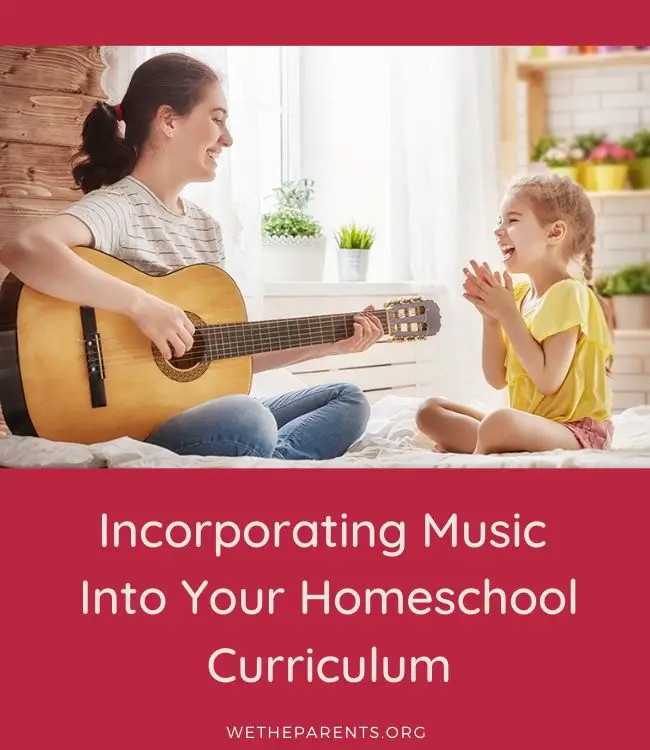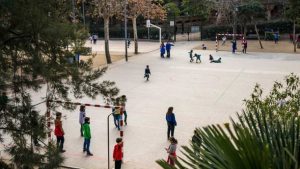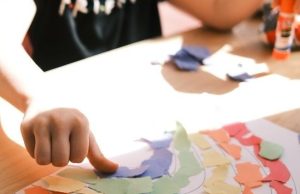Homeschooling can be tough on parents, especially since you can feel alone or isolated while trying to come up with curriculums completely on your own.
But, rest assured — you are not alone! Reaching out to other parents can help some, but there is also an abundance of resources online, and on forums, that you can utilize for assistance.
Music education can sometimes seem to fall by the wayside, but should certainly become an integral part of your homeschool curriculum.
Music education is renowned for benefitting children in multiple ways, such as improvement in academic results, advanced social skills, and a higher sense of self-esteem.
Nor need you be musically inclined to incorporate music education into your homeschooling, either. The online world is full of resources to help you keep music alive in your homeschool environment.
1. Learn an instrument online with private music lessons
Private music lessons are probably one of the easier and better ways to provide your child with musical education and will let you off the hook if you’re not musically trained yourself!
Instead, they can learn an exciting new skill offered by a tutor/teacher who specializes in a particular instrument, ranging anywhere from the classical violin or cello to the electric guitar or ukulele.
There are numerous resources for taking music lessons in your own home, either by having an instructor come to you in person or by taking online private lessons.
Companies that specialize in this type of music education, such as Music To Your Home, for example, offer your child the option of learning the piano online with their own private tutor.
If online isn’t your preference, one of their instructors will visit you personally to teach your child to play. All you’ll need is a piano or keyboard for practicing on.
Not only does this enable your child to learn at home, but lessons are personalized to suit your needs and your child’s skill level.

2. Music apps
There are numerous educational apps out there for your child’s musical benefit! Kids can learn about basic music theory, how to read music, and even how to write songs. Some of the better apps for providing musical education at home include:
- Tonal Harmony Analysis: This one allows students to learn and utilize chords with progressions.
- MuseScore: sheet music: This is one for aspiring songwriters who’d like to write their very own sheet music.
- EarMaster – music theory & ear training: This app is great for a beginner learning about music theory basics and how to develop concepts like rhythm and pitch.
- Music Tutor (sight-reading): This one’s great for learning how to read music at a more advanced level, children can enjoy timed sessions on developing their sight-reading skills.
3. Music education websites and books
There are various ways to encourage your child to study music through online websites, and many to choose from that can help with music education at home.
One great option is Classics for Kids, as it’s an easy-to-navigate site that teaches children musical terms, how to match rhythm, and even to compose music on their own.
There are activity sheets and lesson plans which make it easy for a parent to download and utilize within the homeschool setting. The best part about Classics for Kids is that it’s free!
This site focuses on specific composers and music theory, so your child can learn about the history of music and what makes it so inspiring.
They can also listen to various audio clips and take quizzes to test their musical knowledge each week, just like a real music class.
It’s also important to find music books to help you teach your children at home. These don’t necessarily have to be textbook style, but reading about music in some way to help your child understand the importance of the arts is undeniably beneficial in helping them become more well-rounded and creative adults.
There are also numerous books about music for younger children, while you gradually work your way up to more in-depth biographies of musicians and composers, as they progress.
4. Other musical parents
Let’s not forget about all the other homeschooling parents out there that can be of assistance to you as well.
There are many available forums using online resources like Facebook groups or Homeschool websites (like Learning Table!) — to help you find what you need for your children.
It can also help if you know another homeschooling, or musically-focused parent, who knows how to play an instrument or sing themselves.
Heck, it may even be possible for you to trade subjects with each other! For example, you could ‘barter’ with them to teach their children math or English in exchange for them teaching your child some music lessons at no cost. A novel way of meeting other homeschool parents, while incorporating music education into your child’s curriculum.
5. Community outreach
Last, but definitely not least, music and the arts are prevalent in almost every community, so it won’t hurt to reach out and discover what sort of extracurricular musical activities you can find that may be more of a non-home, non-traditional school setting, yet still provide that musical education you seek for your children.
Community theatres can be a wonderful resource for this, as many theaters and performing arts companies welcome and encourage children to participate in learning workshops, practice groups, classes, and, in some cases, performances. Fabulous for a child with an interest in the performing arts.
Another wonderful reason to look into community theater, or outside music activities, is that it invites your child to interact with other children in an educational setting.
Homeschooling can occasionally breed a sense of isolation, especially if you only have one child. Involving them in community art projects will help break them out of their shell(s) to experience concepts like public speaking, as they’d learn to speak, sing, and perform on stage before an audience.
Music education is essential
Musical education should never be overlooked in a homeschool curriculum. Although it may be regarded as a less important subject than, for instance, math or science, studies have proven that music education can actually help propel students forward in other subjects.








